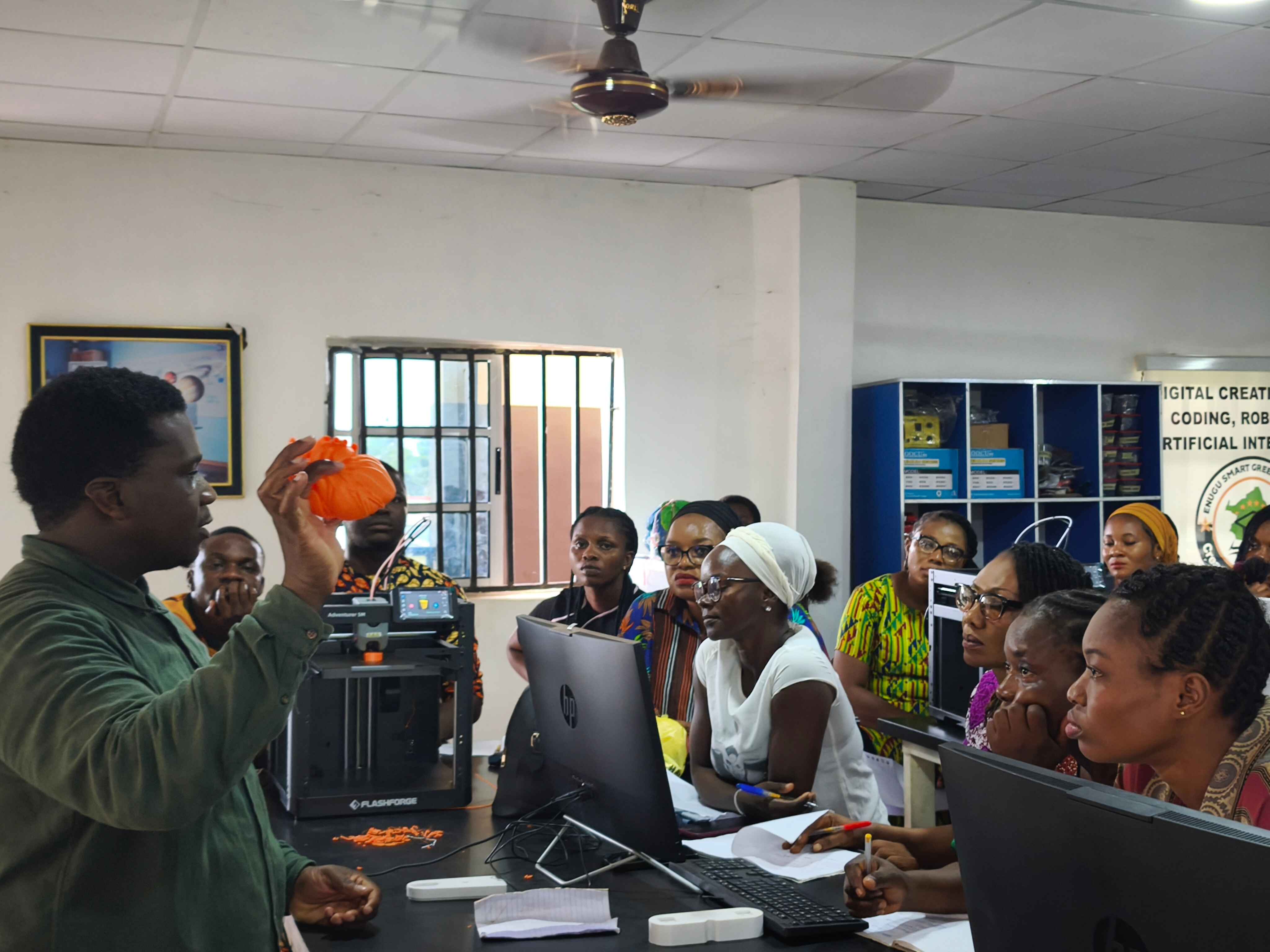[Scene opens in a university innovation lab in Lagos]
Tolu (STEM Teacher): You know, Ade, our school just approved a new 3D printing lab! But now, we have to choose between Flashforge vs Creality 3D Printers.
Ade (Product Design Consultant, Generative CAD): That’s a good challenge, Tolu. Both brands have made a big mark in Africa’s education sector. But the right choice depends on your needs — cost, precision, durability, and ease of use.
Tolu: True. Our goal is to make 3D printing part of the curriculum. From engineering to architecture, even art students want to create.
Ade: Exactly. Across Africa, especially in Lagos, Accra, and Nairobi, schools are embracing 3D printing in education like never before. Adoption has increased by 65% in the last three years. Students now learn real-world design through Top-Rated CAD Courses in Lagos, Nigeria, and digital manufacturing courses.
The Big Debate: Flashforge vs Creality
Tolu: So, what’s the real difference between Flashforge vs Creality 3D Printers?
Ade: Let’s break it down. Flashforge is known for its premium, plug-and-play systems—ideal for classrooms. Models like the Flashforge Adventurer 5M Pro are compact, safe, and quiet.
Creality, on the other hand, offers budget-friendly options with strong customization. Their Ender and CR series are favorites among advanced users and schools running technical workshops.
Tolu: So Flashforge feels more “ready-to-teach,” while Creality is “ready-to-tinker”?
Ade: Exactly! Flashforge gives you stability; Creality gives you freedom. That’s why at Generative CAD, we help educators match each printer to their teaching style.
How Schools Are Revolutionizing Learning with 3D Printing
Tolu: I’ve noticed how 3D printing transforms how students think. Before, design was abstract. Now, they bring their imagination to life!
Ade: Absolutely. Across 3D Printing in Nigeria & Ghana, students use these tools for engineering projects, architecture models, and even electronics casing design. It’s hands-on, creative, and deeply educational.
A recent survey showed that 74% of African schools using 3D printers report improved STEM engagement. Students find 3D printing for students fun and rewarding. Teachers also benefit—many now take cad courses in Lagos, Nigeria, to stay ahead of new technology.
Comparing Costs: Cheap vs Premium Printers
Tolu: Let’s talk cost. Schools run on tight budgets.
Ade: Right. Creality 3D printers are generally cheaper. They start around ₦300,000, depending on the model. Flashforge units, with better enclosures and warranty coverage, range higher but include safety features for school use.
Tolu: And what about maintenance?
Ade: Flashforge’s closed systems reduce troubleshooting. Creality, being open-source, requires more tweaking—but that’s perfect for students learning advanced 3D printing engineering.
So, it’s not just “cheap vs premium.” It’s about purpose. For 3D printers for schools, Flashforge wins in safety and simplicity. For 3D printing in manufacturing or energy labs, Creality may offer more control.
Africa’s Education Tech Momentum
Tolu: I read a report about how 3D printing in education is changing industrial learning.
Ade: Yes! In 3D Printing in Lagos Nigeria, and cities like Abuja and Port Harcourt, universities now integrate 3D printing with product development consulting companies. Students design industrial components before they graduate.
It’s no longer just about theory—it’s future-ready learning. 3D printing in architecture, energy, and electronics now link classroom creativity to real industries.
At Generative CAD, we see this every day. From 3D Printing in Accra Ghana to 3D Printing in Education programs across Africa, the movement is unstoppable.
Educator Voices
Tolu: I interviewed a few colleagues. One from Accra said, “3D printing gave my students confidence to prototype their first drone.” Another in Abuja shared, “Our engineering students now 3D print models for thesis defense—it’s revolutionary.”
Ade: That’s the spirit. 3D printing for teachers isn’t just about machines. It’s about empowering the next generation. When combined with product development consultation and design engineering, schools become mini innovation hubs.
Structured Learning with Generative CAD
Tolu: So, how does Generative CAD fit into this?
Ade: We provide 3D Printing Services & Supplies in Ghana & Nigeria, plus product design consulting. We also offer Top-Rated CAD Courses in Lagos, Nigeria, linked via structured data to other African cities like Abuja, Kano, Kaduna, Nairobi, and Monrovia.
These programs are certified, connecting directly to Flashforge vs Creality 3D Printers and 3D Printing in Education industry standards. It’s a full ecosystem: design, print, test, and produce—end-to-end.
Choosing What’s Right
Tolu: So, if I’m buying for my school, what’s your final verdict?
Ade: Go Flashforge if you want turnkey reliability and minimal maintenance. Choose Creality if you prefer custom flexibility and want students to experiment more.
At Generative CAD, we recommend Flashforge for 3d printers for schools and Creality for technical labs or R&D centers. Both are best-in-class, but your goals decide the winner.
The Future of Educational 3D Printing in Africa
Tolu: I love that vision. Do you think this trend will continue?
Ade: Without doubt. The future of 3D Printing in Nigeria and Ghana is bright. As schools embrace 3D printing industrial production in Nigeria, we’ll see next-gen engineers building local solutions—everything from architectural models to smart energy devices.
Education and technology are merging into a single language: innovation.
Final Thoughts & Call to Action
Tolu: You’ve convinced me, Ade. I’ll go with Flashforge—and register for a CAD course while I’m at it!
Ade: (smiles) Great choice. And remember—whether it’s Flashforge vs Creality 3D Printers, Generative CAD is your trusted partner for everything from 3D Printing Services in Nigeria to product development consulting.
🚀 Power Your Innovation with Generative CAD – West Africa’s #1 Product Development Partner.
From Design Engineering to 3D Printing and CAD Software, we help businesses and schools build smarter, faster, and better.
📍 Visit us at: 3, Saliu Close, Off Odebiyi Street, Alhaji Haruna Bus-stop, Ogba, Lagos, Nigeria
📧 Email: info@generativecad.com
| 📞 Call/WhatsApp: +234 703 324 8607
✨ Don’t just keep up—get ahead. Partner with Generative CAD today for future-ready solutions that transform ideas into market-leading products.


